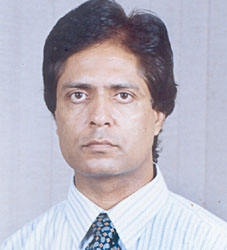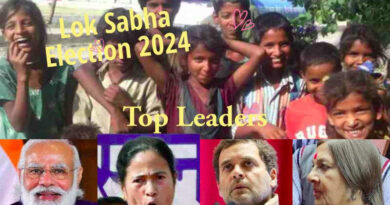Can You be a Hindu or a Muslim Journalist?
By Rakesh Raman
In India, TV channels fall under three categories: bad, worse, and worst. I was watching a January 9 program on one such channel called CNN IBN.
The anchor Rajdeep Sardesai was interviewing Asaduddin Owaisi whose brother Akbaruddin Owaisi – a member of legislative assembly (MLA) in India – was arrested on Tuesday for making a speech that some thought spread hatred between Hindu and Muslim communities in India.
As in many other TV shows, the anchor Sardesai started the TV show with the conclusion that it was a hate speech delivered by Akbaruddin Owaisi. To this, Asaduddin retorted immediately, saying how a TV anchor can pass judgment on a case that is sub-judice. You can’t be a judge and the jury while sitting in a TV studio, Asaduddin suggested.
He also remarked that he had full faith in the Indian judiciary and let the courts decide if his brother delivered any hate speech. And till such time, it’s just an allegation. Asaduddin was right because you’re innocent till you’re proved guilty.
While most so-called journalists in India don’t posses any domain knowledge on the subjects that they cover, they ask random and vague questions on their TV shows. And their conclusions are either horrible or laughable. In fact, this is happening at an alarming frequency across media products including newspapers, magazines, TV programs, and online properties.
That’s what Justice Markandey Katju, chairman of the Press Council of India, opined recently. He said that Indian journalists are working against the national interests, they aggravate communal tension with their wrong reporting, they’re intellectually weak, and so on. (Read: Why Justice Katju Hates Indian Journalists)
As if journalists were not enough, now to add fuel to the fire, even ordinary Bollywood actors – who have yet to prove their worth in their own profession – are frequently invading TV territory with their crude programs.
Recently, a show called Satyamev Jayate hosted by a Bollywood actor Aamir Khan went berserk and loosely played with the sentiments of people by throwing baseless, unsubstantiated facts on important societal issues. (Read: Why Can’t Satyamev Jayate Tell the Truth?)
Sardesai’s program was no different. It was going in all directions without staying on the main point of discussion about Akbaruddin Owaisi’s speech. As usual, Sardesai was fumbling and floundering with his language and utterances. English is a difficult language for most Indians.
On the other hand, the interviewee Asaduddin was extremely logical and fluent with his responses. When Sardesai was cornered because of his lack of journalistic abilities, he had to admit in the show that being an Indian citizen; he was getting passionate about the issue.
But his extreme passion trampled all norms of ethical and objective journalism. With a preconceived notion that it was a hate speech by Akbaruddin Owaisi, he behaved on the TV show as if a Hindu journalist is asking questions from a Muslim respondent.
Most Indian journalists are not trained enough to know that a journalist is nothing but a body and brain. You’re not supposed to be part of any nationality, community, race, or religion while performing your journalistic duties.
You’re not supposed to act as a Hindu or a Muslim or a Christian journalist. You’re just a messenger of a message. You can express your opinion only if it’s flawlessly substantiated. Only then you can do objective journalism and do justice to your jobs. Otherwise, this profession is not for you.
As a human being, you can have strong emotions about an issue. You can express those emotions in your living room but not in a TV show or in a publication where you’re supposed to deliver unbiased reports on different issue regardless of your personal tastes or preferences.
Asaduddin is right when he says only courts can decide about such sensitive matters – like the speech by his brother. Because nothing is absolutely right or absolutely wrong in this world. It’s only your relative position where you stand and view something to decide about right and wrong.
For example, when Osama Bin Laden or many American soldiers and innocent people are killed in conflicts on the orders of American President Barack Obama, he’s praised and even honored with a Nobel Peace Prize.
But there are millions of other people who think killing of any kind is an offence and a sin. As these are different opinions of different people, it’s not possible to conclude what’s right or what’s wrong.
Likewise, there were thousands of people who were cheering and appreciating Akbaruddin’s speech. There may be many more who think he was right.
At the same time, there are many like TV anchor Sardesai who think it was a hate speech. All are human beings with different views. Who will decide who’s right and who’s wrong? Perhaps, a court of law.
Obviously, a TV program room can’t be a court room. And that is the whole point.
By Rakesh Raman, the managing editor of Raman Media Network.
You can also read: More Articles by the RMN Editor, Rakesh Raman




